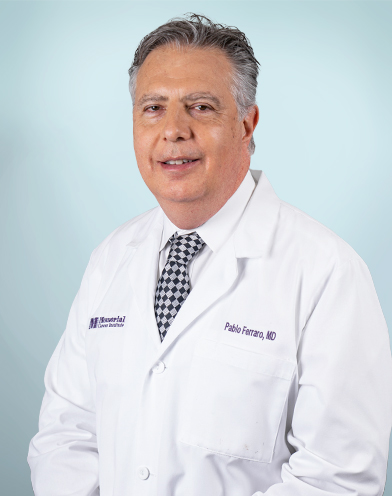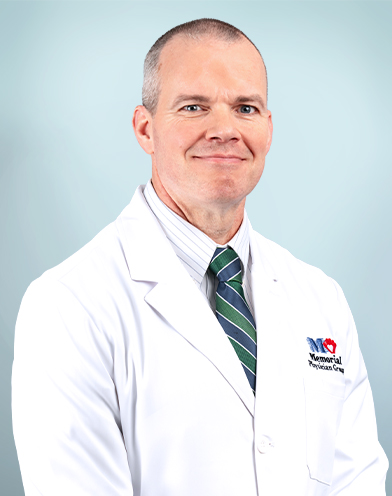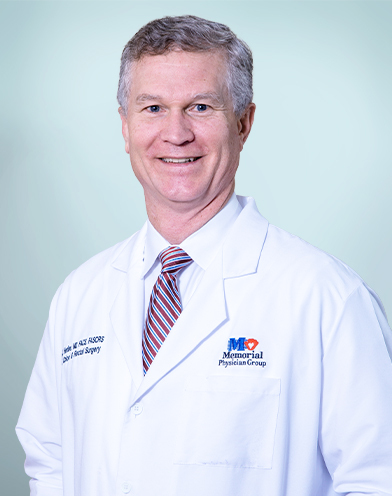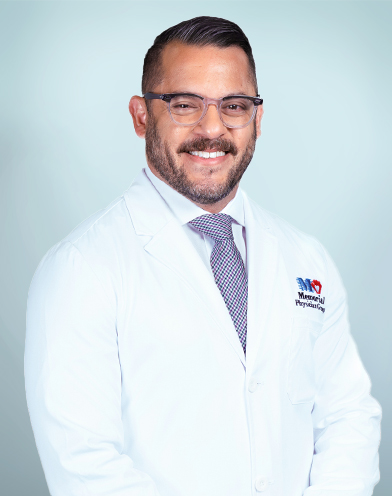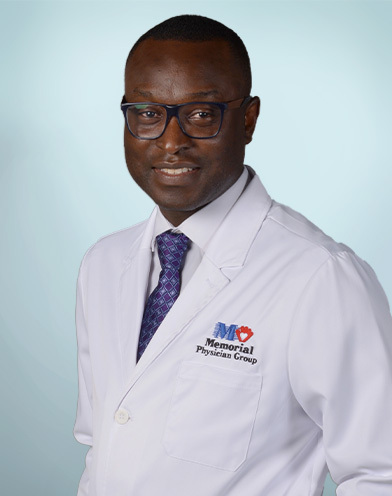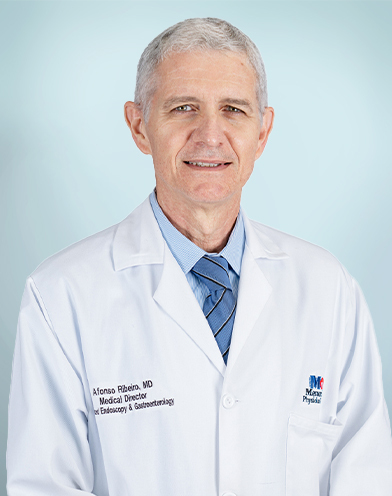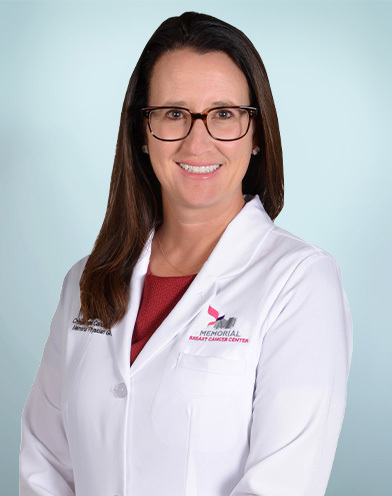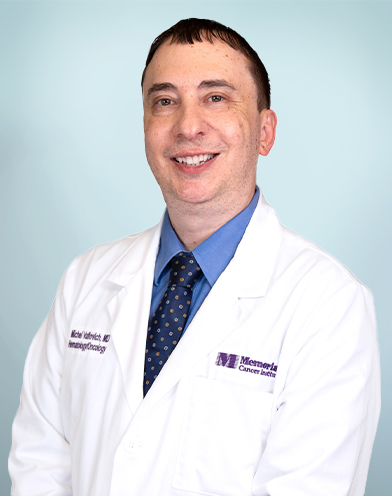Cholangiocarcinoma (Bile Duct) and Gallbladder Cancer
We offer precise diagnosis and a variety of treatments for cancer in the gallbladder or bile ducts.
Cancer in the gallbladder or bile ducts is rare, and diagnosing and treating it can be complex. The disease may be aggressive, so getting a prompt and precise diagnosis is important. Our expert oncologists and surgeons offer treatment options to ease symptoms and improve survival.
Connect with a patient access center. We can help you find the care you need.
954-265-4325Diagnosing Gallbladder or Bile Duct Cancer
The gallbladder is a small organ near the liver that stores bile (a fluid made by the liver to digest fats). Bile passes through bile ducts, a series of tubes that connects the liver and small intestine. These structures are all part of the biliary system.
Cancer can occur anywhere in the biliary system. However, most of these cancers are not detected until a person experiences symptoms. If your doctor suspects you have gallbladder or bile duct cancer (cholangiocarcinoma), you may need some specialized tests, such as:
- Blood tests: Blood tests can measure how much bilirubin, albumin or other substances are in the blood. Bilirubin is a byproduct of the breakdown of red blood cells, and it’s filtered by the liver. Higher levels may indicate a problem in the bile ducts, gallbladder or liver. Blood tests can also detect tumor markers, which may indicate biliary cancer.
- Imaging tests: CT and MRI scans can provide detailed pictures of your gallbladder and bile ducts, including a tumor or other blockage. A cholangiogram is an imaging test that examines the bile ducts to see if they are blocked, narrow or dilated (wide).
- Laparoscopy or cholangioscopy: These procedures involve inserting a thin tube with a tiny camera at the end to see internal structures and tissues. During the procedure, the doctor can take a small tissue sample for biopsy, which can confirm whether cells are cancerous.
Cholangiocarcinoma and Gallbladder Cancer Treatment
Your cancer care team may include several specialists who work together to design a treatment plan. Memorial’s specialists include medical oncologists, radiation oncologists, surgical oncologists, gastroenterologists and more. Your plan will be based on your test results, proven treatments and your personal preferences and goals.
Surgery
Depending on your needs, there are several possible surgical approaches for these diseases. Surgery may be used to remove part or all of the tumor, as well as nearby affected tissues. Removing the tumor may slow cancer growth. The surgeon may recommend palliative surgery if the cancer has spread and can’t be removed completely. This surgery can be used to relieve pain symptoms or treat bile duct blockages.
Examples of surgery include:
- Bile duct resection, removal of a portion of the biliary tree between the liver and the intestines
- Biliary bypass surgery, an operation that changes the flow of bile to reduce symptoms
- Cholecystectomy, a procedure to remove the gallbladder
- Liver resection, removal of the bile ducts/gall bladder and the associated liver tissue
- Stent placement, or surgical insertion of a stent to open a bile duct
- Whipple procedure (pancreaticoduodenectomy), extensive surgery to remove the gallbladder, bile duct, part of the pancreas and part of the small intestine
Other treatments for bile duct and gallbladder cancer
We also offer a range of nonsurgical treatments to treat these cancers:
- Chemotherapy: Chemotherapy (chemo) is a medication that is injected or swallowed to destroy cancer cells. Chemo can cause several side effects, and your care team will help you prevent or manage them.
- Radiation therapy: Radiation uses high-energy rays or particles to destroy cancer cells. This treatment can slow or control a tumor’s growth, shrink a tumor before surgery, destroy remaining cancer cells after surgery or ease symptoms. Memorial offers several types of radiation therapy.
- Targeted therapy: New treatments can target certain genes or proteins that contribute to biliary cancer growth. Targeted therapy is especially effective against cancers with specific tumor markers, and this therapy often involves fewer side effects. We test patients routinely to see if any genes or proteins can be targeted for treatment.
- Embolization: This procedure injects a substance into the blood vessels to stop blood from getting to and feeding a tumor.
In addition to a wide variety of treatment options, you may benefit from palliative care. Our palliative specialists can help you manage symptoms and make treatment decisions.
Connect with a patient access center. We can help you find the care you need.
954-265-4325Gallbladder Cancer and Cholangiocarcinoma Care: Why Choose Memorial Cancer Institute?
When you come to Memorial for diagnosis and treatment of gallbladder or bile duct cancer, you’ll find:
- Expert care: Our oncologists and surgeons are board certified and fellowship trained. They have specialized knowledge and training and stay current on the latest treatment approaches, including clinical trials, for these complex conditions.
- Integrated team: We have a truly integrated cancer program. Multiple specialists collaborate throughout your diagnosis and treatment to design a multifaceted treatment plan. Meet our team.
- Surgical expertise: Surgery in the biliary system is complex and requires highly skilled surgeons with extensive experience. Our surgeons are specially trained in these complicated procedures and perform many each year.
- Center of Excellence: Memorial is one of only a few institutions designated as a Florida Cancer Center of Excellence by the Department of Health.
- Care for the whole person: The cancer journey can be overwhelming, affecting your overall health and mental health. Your team includes support staff who can help you function and live well. At Memorial, you have access to integrative medicine specialists, psychologists, social workers and nutritionists.








